Industrial Contract Manufacturing Group (ICMG) is committed to being the best industrial liquid painting service provider for businesses. Our team has years of experience in the industry, and we use state-of-the-art equipment and specialists in the process for coating metal parts of all kinds.
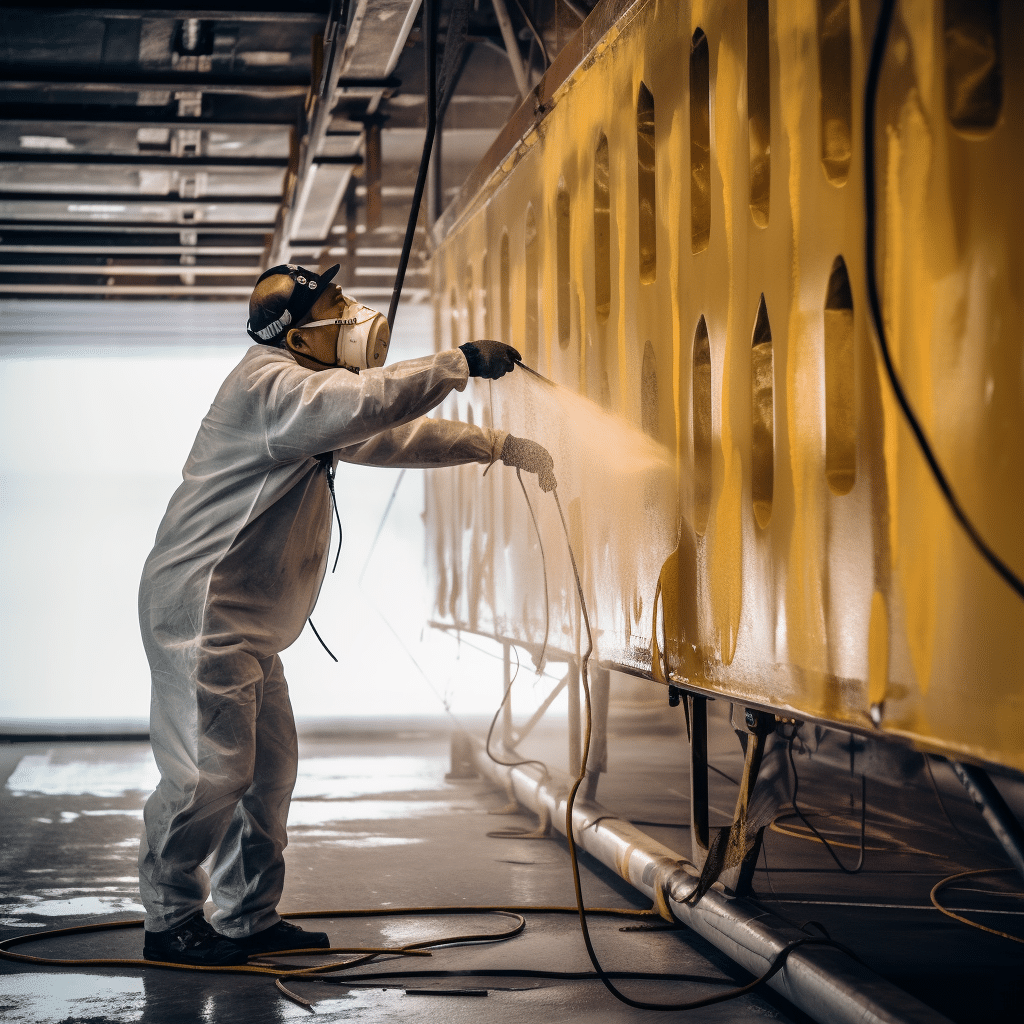

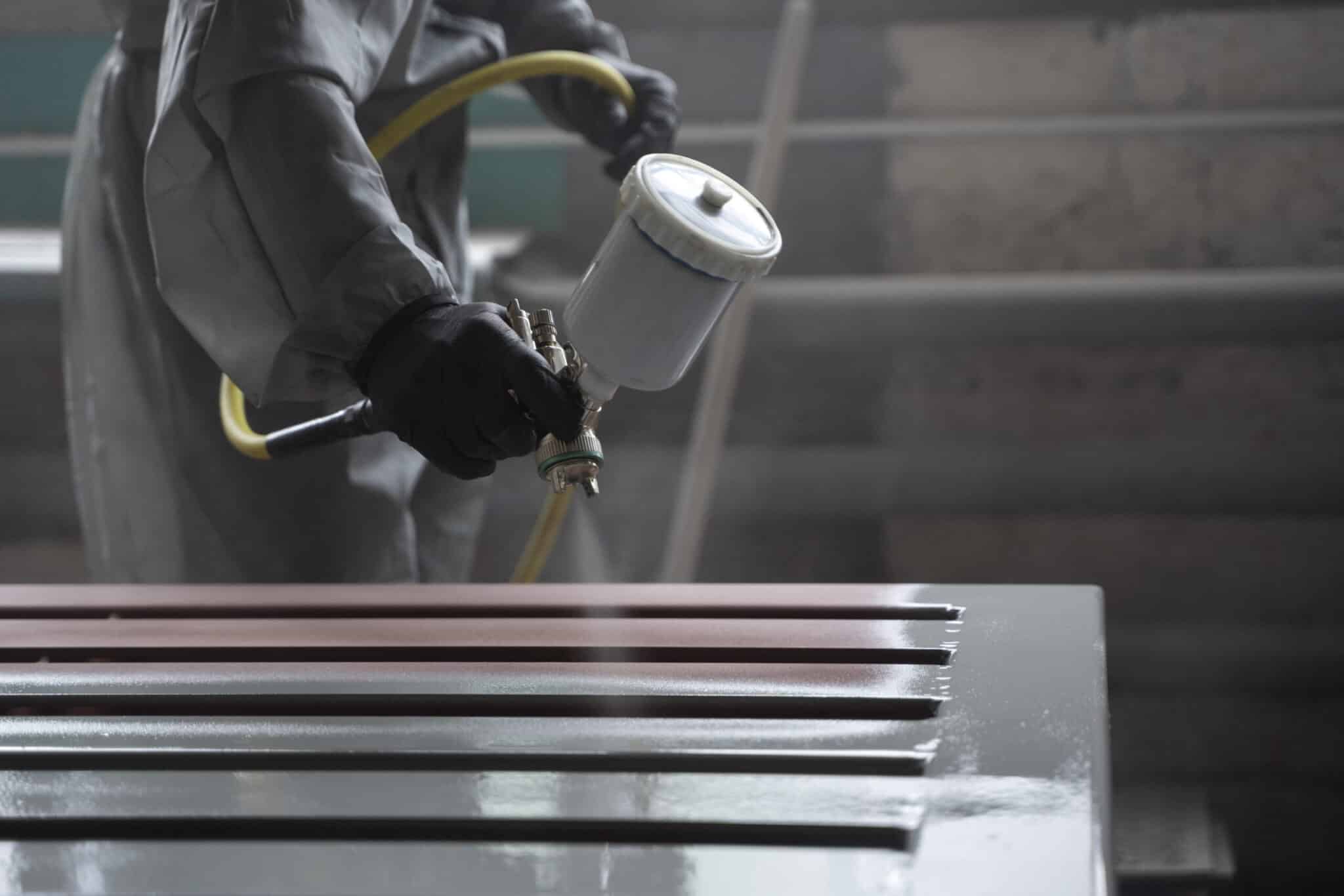
The liquid paint coating is suitable for all types of parts that have elements involving welding and mechanical applications. Used in all industrial fields, liquid paint is used in many contexts, and can also be used when multiple coats are applied to prevent metal corrosion.
Liquid industrial paint is ideal for vehicle bodies of all kinds, for industrial buildings or even for military equipment. Its advantage lies in the reduced surface preparation time during pre-treatments. Its finish and precision also make it preferable for some more creative work.
It is applied using a spray gun and is suitable for a large number of categories of metal parts. The cover is applied in one or more coats depending on the desired finish. It is resistant to all kinds of things such as shocks, fire (for certain types of paint), corrosion or even wear.
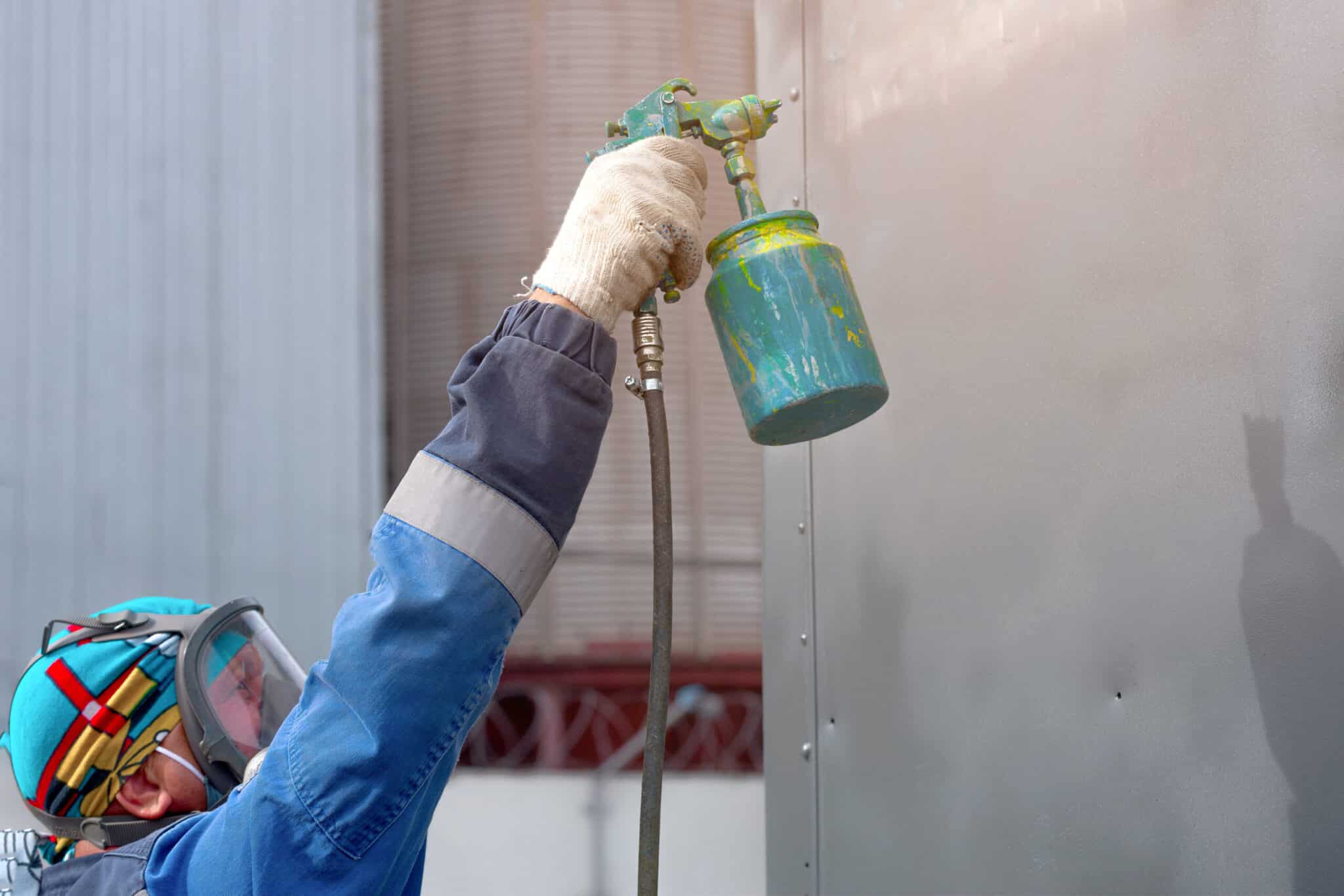
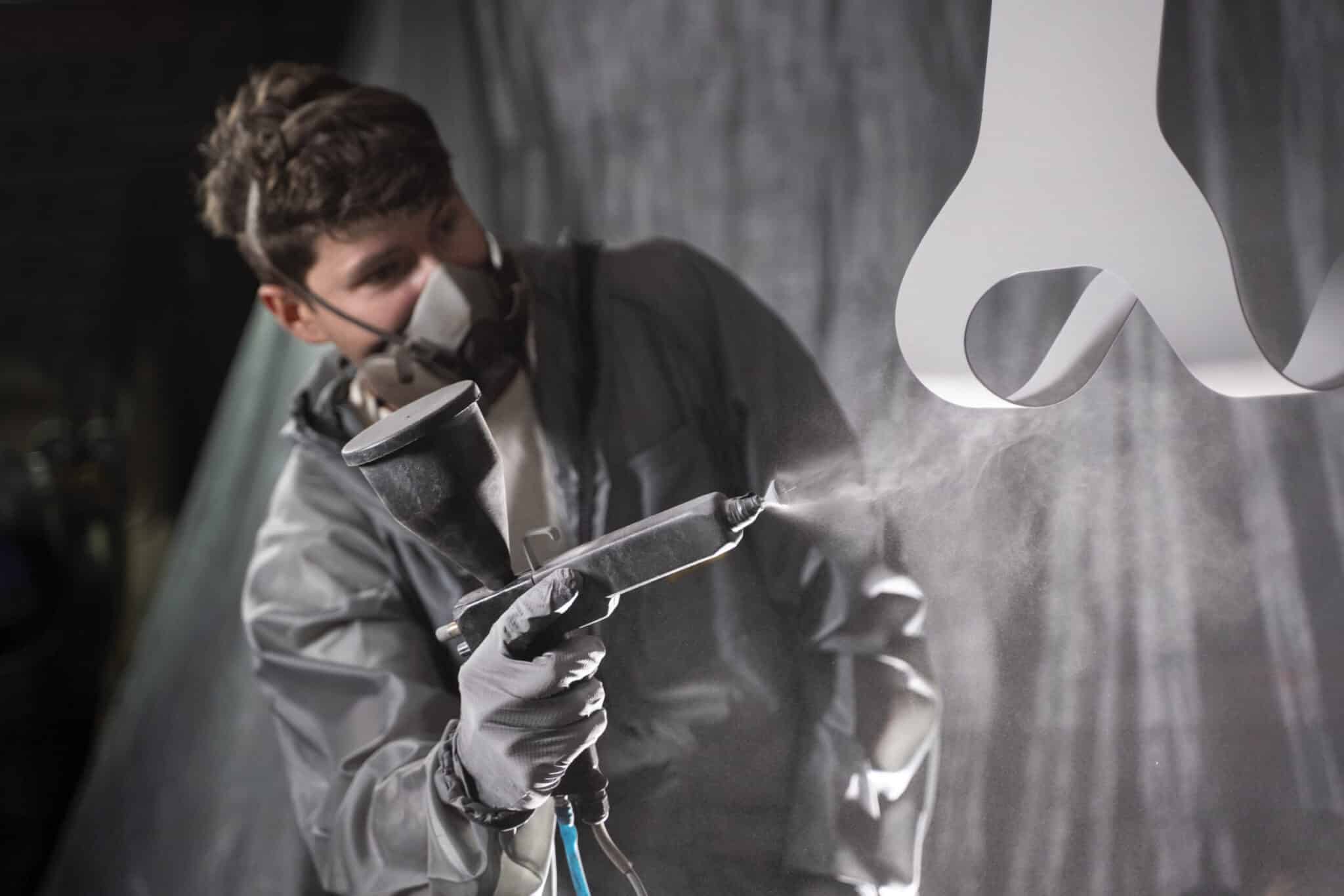
The epoxy liquid paint coating is the perfect choice to protect your metal surfaces against chemicals and the damage that these could cause. It also offers excellent corrosion protection.
Resistant to water, shocks and can hardly be scratched, this category of coating is perfect for all surfaces. Several finishes are available: glossy, glossy or transparent. It can either be used as a topcoat, primer or as an intermediate coat.
Oil-based, this type of coating is suitable for metal but also for plastic. It has a glossy finish and offers excellent resistance. Very good protector against the sun’s rays, it protects the primer and preserves the luster of the colour.
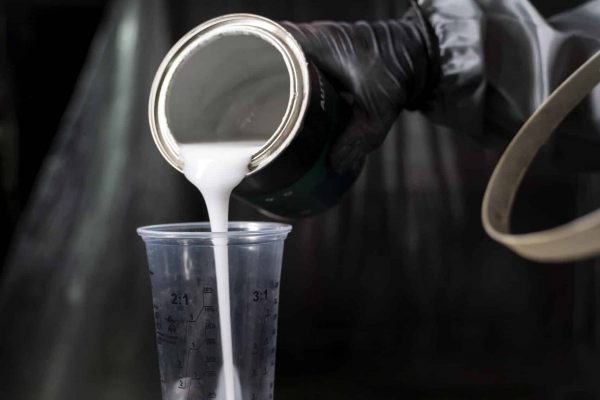
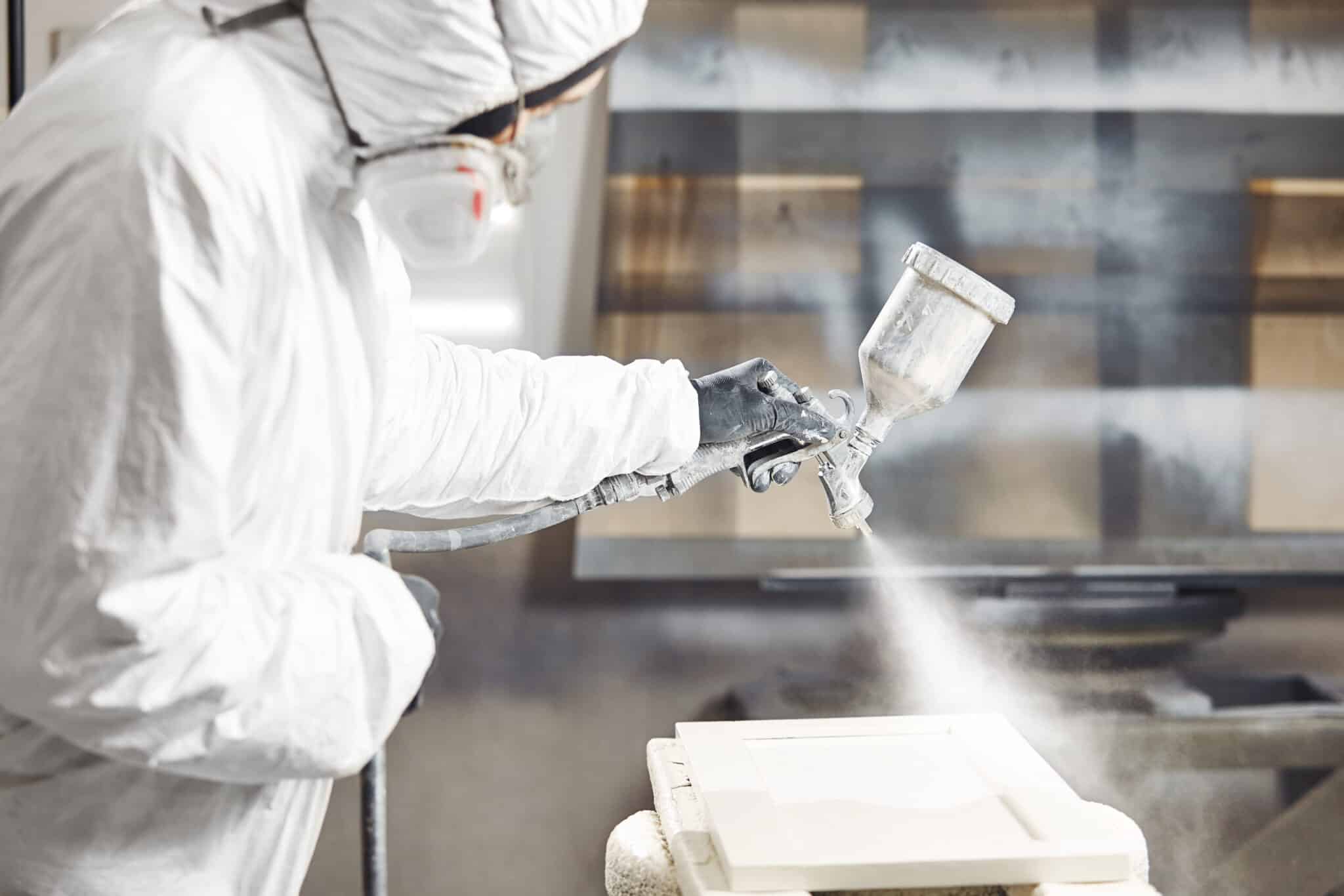
A higher grade than other alternatives, polyaspartic liquid paint replaces conventional epoxy or urethane systems.
This coating is applied in a single layer and its application requires a higher level of expertise because of its rapid drying, which is an advantage thanks to the increased productivity it brings.
The method of applying liquid paint with a spray gun allows great precision and less fumes in the air. This is a quick process since the drying time is reduced.
Degreasing is recommended before applying the coating, but shot blasting and chemical degreasing are less necessary than with powder coating. Good coating quality can be achieved without performing these steps, compared to other processes.
Spraying with a gun ensures a perfect finish since it allows to obtain a uniform result and a smooth paint with a protective thickness for the surfaces. In addition, there is no problem of microbubbling which can reduce the protective capacities of the paint.
It is possible to have larger coated surfaces than with powder paint since with some types of liquid paint drying can be done without putting the parts in an oven as some liquid paints need a lower drying temperature.
For the same reasons, the metal elements do not have to have such high resistance to high temperatures since cooking is not always necessary to carry out the drying step. The risk of damaging parts that are more sensitive to temperature is therefore reduced.
Liquid paint can be applied to parts that are not electrically conductive. As this does not rely on an electrostatic process, a wider variety of materials can receive this coating.
Liquid paint is a coating method that offers a wide range of colors, finishes and textures. It therefore ensures great control over the aesthetics and design of the finished products and heavy-duty corrosion protection over the original material.
Performed in the factory with state-of-the-art technological equipment, several steps are necessary for a well-done application:
Lorem ipsum dolor sit amet, consectetur adipiscing elit. Ut elit tellus, luctus nec ullamcorper mattis, pulvinar dapibus leo.

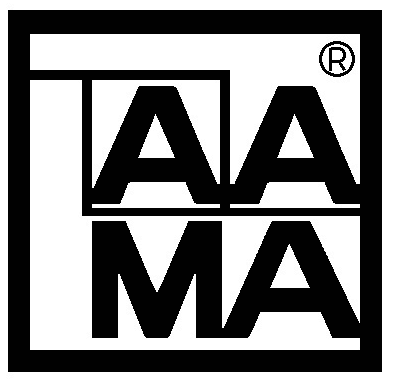
By requesting the paint application subcontracting services of the Industrial Contract Manufacturing Group, you are opting for a complete process. You also select an integrated approach where your interests are put first, and one of these is the profitability of your project.
Supporting manufacturing companies on a daily basis in their activities, the Industrial Contract Manufacturing Group offers its customers a global solution in industrial or manufacturing subcontracting. Recognized for our expertise in multiple fields, we are your single point of contact for all your needs in terms of processing manufacturing materials (rubber, wood, metal or plastic), surface treatment,
Lorem ipsum dolor sit amet, consectetur adipiscing elit. Ut elit tellus, luctus nec ullamcorper mattis, pulvinar dapibus leo.
It’s a coating that is applied in a liquid condition and dries to form a protective layer on a surface known as a liquid coating finish. They are frequently used to protect and improve the appearance of a variety of materials, including metal, plastic, and wood, in industrial and commercial contexts.
The raw materials that are used to create liquid or even powder coatings are resins, pigments, additives and carriers. The liquid coating is also mixed with water to create a water-based product that can be directly applied to the metals. Making it an effective coating that provides superior protection from flammable products.
Liquid paint (or coating) is a metal coating process that is carried out using a spray gun. The topcoat is sprayed onto the metal surface in one or more coats, depending on the type of liquid paint used and the purpose of the coating (primer, finish, intermediate coat).
This paint can be applied to all types of metallic materials. It has a level of elastic resistance to wear and impact, as well as chemical attack, fire (for certain types of paint) and corrosion.
Liquid coatings that employ water as a medium rather than solvents are known as “water-based materials.” Compared to solventborne coatings, they generate fewer pollutants and pose a lower risk of igniting, making them more ecologically benign.
A coating’s capacity to shield the underlying substance from harm brought on by exposure to ultraviolet (UV) light is known as UV protection. UV-protective coatings are frequently used to increase the service life of outdoor products since UV light can cause fading, discoloration, and other types of material degradation.
Liquid coatings with a high percentage of solids content, or a high proportion of dry material in relation to the coating’s overall volume, are referred to as high-solids coatings. Compared to other liquid coatings, they frequently have a thicker film structure, which might offer better durability and protection.Liquid coatings with a high percentage of solids content, or a high proportion of dry material in relation to the coating’s overall volume, are referred to as high-solids coatings. Compared to other liquid coatings, they frequently have a thicker film structure, which might offer better durability and protection.
A coating’s solid content has a significant impact on both its performance and characteristics. Higher solids content coatings have a thicker film structure and can offer improved durability and protection. High-solids coatings might have greater material costs and are frequently more expensive.
A liquid coating’s maximal level of protection will vary depending on the kind of coating and the environment it will be utilized in. Some coatings can offer improved defense against heavy-duty corrosion, chipping, and cracking. Other coatings might offer chemical resistance, UV protection, or different kinds of protection.
Traditional solventborne coatings are liquid coatings in which the coating components are dispersed through solvents. They often contain organic substances like oils and resins. Although they have a history of widespread use, there are significant environmental and health problems.
Liquid coatings that offer corrosion protection can be used to protect stainless steel contact surfaces. Additionally, the coating can be utilized to make the stainless steel surface easier to clean and to improve its appearance. For this purpose, high-solid coatings and those with good corrosion protection are frequently utilized to offer maximum protection against chipping and other possible damages.
Organic compounds can be utilized as binders and resins in liquid coating formulations, which are used to give the coating adhesion, strength, and durability. They can also increase the final coating’s resistance to specific chemical and physical assaults. The environment and public health, however, may suffer from the use of some organic chemicals. And for this reason, water-based and eco-friendly coatings are gaining popularity as alternatives.